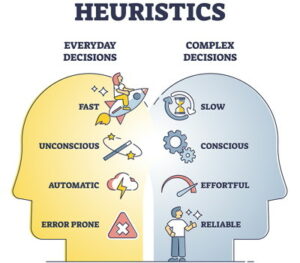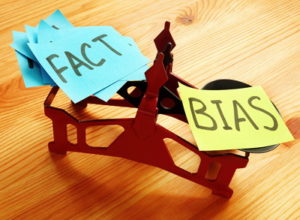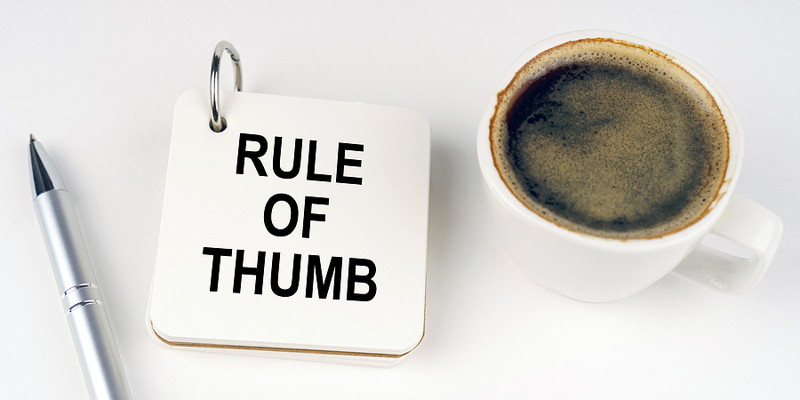 In psychological terms, there is a link between the representative heuristic and the availability heuristic, which is something that we’ve written about in more detail elsewhere on this site.
In psychological terms, there is a link between the representative heuristic and the availability heuristic, which is something that we’ve written about in more detail elsewhere on this site.
The availability heuristic uses recent examples in order to judge the bets that we’re thinking of placing at any given moment. The representative heuristic, meanwhile, is used when judging the probability of something happening when the outcome is uncertain. That is to say, if you aren’t sure how something is going to pan out then you are more likely to judge a possible outcome according to the ‘rule of thumb’.
The big problem with the representative heuristic is that just because something is more representative doesn’t mean that it’s also more likely to happen. It is something that it is easy for our brains to compute, which is why it is that we tend to use it so often.
It is common for people to judge a new event against a previous event that seems similar to it. We estimate the probability of something happening by looking at similar things that have also happened, comparing how often they happened and therefore intimating how likely the new thing might happen.
The Cognitive Bias That Is The Representative Heuristic
 As with other things on this site, the representative heuristic is a cognitive bias. It is used as a shortcut to stop us from having to think about something for too long, much in the same way as the availability heuristic and the anchoring bias are used.
As with other things on this site, the representative heuristic is a cognitive bias. It is used as a shortcut to stop us from having to think about something for too long, much in the same way as the availability heuristic and the anchoring bias are used.
The heuristic helps us to reduce the amount of time and effort we have to put into making a decision, even though it actually stops us from making good decisions. We tend to put things into categories according to their relation to other things that have happened in the past, with the typical member of that group being known as a ‘prototype’.
By using the representative heuristic, we look at similarities, rather than engaging in complex explanations. It is one of several mental shortcuts that we tend to use to help speed up our decision making, relying on categories that we can put things in in order to make sense of what is around us.
The difference between it and the availability heuristic is that the latter is a mental shortcut that allows us to judge the probability of something happening according to how easy it is to remember a similar thing happening, as opposed to matching a stereotype. They are, though, two sides of the same coin.
Representative Heuristic In Betting
 We have written elsewhere on this site about the Gambler’s Fallacy, which was created in 1913 after black had come up on a roulette wheel 26 times in a row. After about the 15th time, bettors began to pile on red because they assumed that it couldn’t keep coming up black, when in actual fact each spin bore no reality to the last.
We have written elsewhere on this site about the Gambler’s Fallacy, which was created in 1913 after black had come up on a roulette wheel 26 times in a row. After about the 15th time, bettors began to pile on red because they assumed that it couldn’t keep coming up black, when in actual fact each spin bore no reality to the last.
As with the Hot Hand Fallacy, in which someone on something of a streak is assumed to be able to keep up that streak, both are examples of the representative heuristic. They are dangerous things to turn to when gambling as they affect our thinking.
Rather than working hard to think logically, our brain makes snap decisions that aren’t helpful to gambling. One of the reasons for this is that we tend to prefer randomness when it comes to games of chance.
That is to say, when presented with one lottery ticket in which the numbers seem entirely random and a different one in which there is a pattern, most people will pick the random numbers in spite if the fact that both tickets have exactly the same chance of winning. Similarly, the bettors in Monte Carlo looking at the roulette wheel preferred the idea that red would come up next to more black.
The Rule Of Thumb

Think about how you behave in every day life. How many times do you tend to turn to the rule of thumb as a way of making decisions? The rule of thumb is an approximate method for doing something, so you might look at the size of the space in your living room that a new cabinet has to fit into and think that it needs to be about this big, rather than exactly that size.
Maybe you’ve need to get some paper to hand out to friends to write quiz answers on and you grab a handful rather than count out the exact amount that you need. Both of these are examples of rule of thumb.
It is not difficult to imagine how that might be something that you do when you’re placing a bet. What you should do when betting on something is a wealth of research, but what you’re more likely to do is compare what you’re thinking of betting on to other things that fit into the same bracket that you’ve bet on in the past.
This is often the sort of thing that will be in someone’s head when they’re thinking of betting on a football team, for example. Similarly, how well horses have done in the past will dictate whether you bet on a horse with a similar name or that the same jockey is riding, say.
Lacking Value
 Companies know that bettors will use rule of thumb to decide whether to bet on something or not. As a result, they tend to take advantage of that fact to offer us things that lack any sort of value but that we’re inclined to bet on thanks to the fact that we’ll have turned to the representative heuristic in order to decide what to bet on.
Companies know that bettors will use rule of thumb to decide whether to bet on something or not. As a result, they tend to take advantage of that fact to offer us things that lack any sort of value but that we’re inclined to bet on thanks to the fact that we’ll have turned to the representative heuristic in order to decide what to bet on.
We judge things based on flawed perceptions, so betting companies will appeal to our ‘gut feeling’ about one outcome over another. They will advertise a bet that is extremely unlikely to pay off, knowing that we will be extremely unlikely to actually assess it sensibly.
Instead, we’ll use the rule of thumb that we’ve placed and won other bets to decide that this bet should fit into the same category as it and therefore we’d be silly not to place the related bet. This is good news for the betting company but terrible news for those of us that are hoping to be able to improve our bankroll.
We will make poor decisions rather than properly evaluating the bet that is in front of us. The best way to avoid falling foul of the representative heuristic is to view each and every bet that we place on its own merit and to avoid placing a wager just because our ‘gut’ is telling us to.
